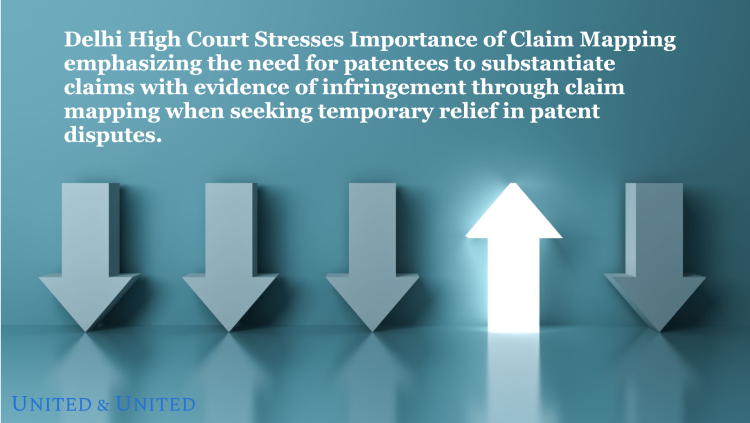In a recent ruling, the Delhi High Court highlighted the essential role of “claim mapping” in patent infringement cases, especially when seeking interim injunctions. The Court emphasized that beyond establishing a prima facie case, balance of convenience, and irreparable harm, the applicant must demonstrate a fourth element—claim mapping. This ruling came in the case of F-Hoffmann-La Roche AG & Anr. vs. Zydus Lifesciences Limited.
“Claim mapping” refers to the process of comparing a patent’s claim to the allegedly infringing product or method. Justice Saurabh Banerjee, presiding over the case, noted that this step is critical in determining whether a patent has indeed been infringed. The Court made it clear that a patentee cannot secure a temporary injunction solely on the basis of having a registered patent.
In the October 9 judgment, the Court explained that claim mapping must establish a clear link between the claims of the patent and the alleged infringing product. “There is a fourth limb as well, i.e., claim mapping, whereby it is necessary for such a party to establish and cross the hurdle of showing that the impugned product… is likely to and/or is actually infringing their suit patents,” the Court stated.
This ruling was issued in response to a motion filed by the Swiss pharmaceutical giant, F-Hoffmann-La Roche AG (Roche), seeking to stop Zydus Lifesciences, an Indian company, from marketing its drug “Sigrima.” Roche claimed that Sigrima was a biosimilar to its breast cancer treatment drug, Pertuzumab, marketed under the brand name Perjeta. According to Roche, Zydus had acquired small quantities of Pertuzumab from Roche’s Indian affiliate, then proceeded to develop and seek approval for a biosimilar product.
Despite Roche’s arguments, the Court dismissed its plea for an interim injunction, citing a lack of evidence regarding claim mapping. The ruling underscored that the legislative intent behind the Patents Act, 1970, does not support granting an injunction solely on the basis of a patent registration. “Without any ‘claim mapping,’ there is no basis for this Court to render any finding and/or draw any final conclusion against the defendant,” Justice Banerjee remarked.
The Court also noted that Roche’s two suit patents—IN 646 and IN 632—were still pending, and issuing an ad-interim injunction would undermine the provisions of the Patents Act. “Granting their current application would be equivalent to granting them an ad-interim injunction in these circumstances,” the Court observed.
Although Roche had built a strong case against Zydus, the absence of claim mapping left the Court unable to grant any favorable orders. The Court refrained from commenting on the merits of the case but concluded that without claim mapping, it could not rule against Zydus’s product, Sigrima.
This ruling emphasizes the need for patentees to substantiate claims with evidence of infringement through claim mapping when seeking temporary relief in patent disputes.


